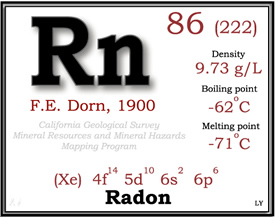Water Testing for Radon in Connecticut
Since radon is a gas, it is often found in Connecticut drinking water, testing is a good idea. Radon can enter the air after leaving the water on during showering, cooking, and other water use activities. Water from private wells may contain much higher levels of radon than public wells.
Why should you test your CT well water for radon?

Radon is a colorless, odorless, and tasteless gas that is known to cause cancer when inhaled or consumed over long periods of time. Radon is produced by the natural radioactive decay of radium (from uranium) in the ground.
Some rocks, such as granite, limestone, and sandstone, contain high concentrations of radium and produce significant amounts of radon in Connecticut. Groundwater found in these rock formations may contain elevated concentrations of radon.
Radon moves easily from the water to the air, which means that waterborne radon contributes to airborne radon. In general, airborne radon poses a greater health risk than waterborne radon.
However, the EPA reports that the general cancer risk associated with waterborne radon is higher than any other drinking water contaminant. Scientists estimate that the lifetime risk of developing cancer from water containing high levels of radon is approximately one chance in 10,000.
Certain regions of the United States and CT have groundwater supplies with elevated concentrations of radon. However, scientists agree that completely removing radon from drinking water probably will reduce the average cancer risk by only a few percent because most radon enters the air in a home directly from soil and rocks.
To order your radon in water testing call us today 888-558-1574









